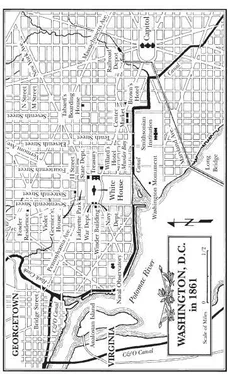John Miller - The First Assassin
Здесь есть возможность читать онлайн «John Miller - The First Assassin» весь текст электронной книги совершенно бесплатно (целиком полную версию без сокращений). В некоторых случаях можно слушать аудио, скачать через торрент в формате fb2 и присутствует краткое содержание. Жанр: Исторический детектив, на английском языке. Описание произведения, (предисловие) а так же отзывы посетителей доступны на портале библиотеки ЛибКат.
- Название:The First Assassin
- Автор:
- Жанр:
- Год:неизвестен
- ISBN:нет данных
- Рейтинг книги:3 / 5. Голосов: 1
-
Избранное:Добавить в избранное
- Отзывы:
-
Ваша оценка:
- 60
- 1
- 2
- 3
- 4
- 5
The First Assassin: краткое содержание, описание и аннотация
Предлагаем к чтению аннотацию, описание, краткое содержание или предисловие (зависит от того, что написал сам автор книги «The First Assassin»). Если вы не нашли необходимую информацию о книге — напишите в комментариях, мы постараемся отыскать её.
The First Assassin — читать онлайн бесплатно полную книгу (весь текст) целиком
Ниже представлен текст книги, разбитый по страницам. Система сохранения места последней прочитанной страницы, позволяет с удобством читать онлайн бесплатно книгу «The First Assassin», без необходимости каждый раз заново искать на чём Вы остановились. Поставьте закладку, и сможете в любой момент перейти на страницу, на которой закончили чтение.
Интервал:
Закладка:
When she did not answer right away, Rook knew that she was having trouble making sense of her own plots. That was a difficulty for liars-the more lies they told, the harder it was to keep track of their deceptions.
“I’m frightened of him, Colonel,” she pleaded.
“According to what I’ve heard, you weren’t too frightened of him when he came to visit you. Nor were you too frightened to write him after receiving the secret message from Bennett.”
“You must believe me. Only recently have I learned the terrible truth about him. I didn’t know where to turn for protection.”
Rook sensed her growing desperation. “How about your friend, Colonel Locke?” he asked. “Or didn’t he drop by when you expected him?”
“Has something happened to Sam?”
“Nothing that he didn’t do to himself.”
“May I see him?”
“No.”
“Then you must help me, Colonel.” She stepped closer.
“What must I do to make you believe me?” She touched him on the chest.
He pushed her arm away. “You must tell the truth. Unfortunately, you don’t appear ready to do that. So I’m going to take you to a place that should make it much easier.”
Grenier looked at him crossly. For the first time since laying eyes on her, Rook knew that she was not trying to charm him. “I suppose you mean the basement of the Treasury,” she hissed.
Rook laughed. “No, Mrs. Grenier. You’ll be staying at the Old Capitol Building-an actual prison.”
Portia clutched the train ticket and studied the line of passenger cars that would take her north.
“Your next ride should be more comfortable than the last one,” said Springfield. “Unless you want to hop inside of this.” With the toe of his boot, he gently tapped a bag resting on the platform.
Portia smiled at him. “You’ve all been very good to me,” she said. “Thank you for everything.”
Since her midnight arrival at the White House and the meeting in the Winder Building a few hours later, Portia had stayed out of sight. She was still a fugitive slave-the private property of another person. Under the law, the government had an obligation to return her. It did not matter that she had fled from a regime of cruelty. It did not matter that her owner wanted to murder the president. It did not matter that her enormous personal sacrifice helped to turn the tables against a murderous conspiracy. She was still a fugitive.
The official policy of the Lincoln administration was to respect fugitive-slave laws. During the secession crisis, it wanted to do nothing to antagonize the slaveholding states, especially the handful that remained loyal to the Union. The act of letting Portia go, if it were to become public knowledge, would not sit well.
The solution was not to let it become public knowledge. “Make sure nothing bad happens to her,” Lincoln had said to Rook. The colonel quietly issued orders to a few soldiers whom he knew to be abolitionists. Portia went to a private home where she ate, washed, and rested. Her caretakers prepared a bag of clothes and other necessities, obtained documents that would testify to her status as a free black, and purchased a train ticket to Buffalo. Once there, she would cross into Canada and join a community of escaped slaves who lived beyond the reach of fugitive laws and bounty hunters.
It fell upon Springfield to take Portia to the rail station in Washington. He was also the one to tell her that her grandfather probably was dead-information he had gleaned from the intercepted letter Bennett had sent to Grenier.
“When I went runnin’ from the plantation, I knew that I might not see my family again,” she said. “Then I watched Joe die. Now I’ll have nightmares about what Bennett did to my grandfather. I’ll get over the pain of gettin’ to Washington ’cause that’s just my body hurtin’. I’m not sure I’ll ever get over the other parts.”
“You’re a hero, Portia.”
“There are a lotta heroes, Sergeant, and some gave up more than me. Make sure it ain’t in vain.”
They stood in silence for a few minutes. When the conductor ordered passengers aboard, Springfield helped her with the bag and said good-bye. From the platform, he watched the train chug forward. Portia was on her way.
As the caboose left the station, Springfield turned and gazed at the Capitol. Plans called for a female figure-a statue of freedom-eventually to crown its dome. As he walked toward Massachusetts Avenue, Springfield said a quick prayer. He asked that by the time the statue was completed, all of Portia’s people would have their liberty.
Just then, from near the Capitol, Springfield heard a loud commotion. Was it shouting? He took off in a sprint.
“And that’s why we’re going to leave the top off the dome of the Capitol,” said Lincoln, with a big grin on his face. “You men must have proper ventilation!”
The federal soldiers erupted in laughter, cheers, and applause. Rook, Clark, and Grenier stood to the side. The colonel did not like seeing the president in the open, but he could not deny that Lincoln was in fine form. He talked to the troops with an easy camaraderie, demonstrating the political skills that had taken him to the White House.
When the men stationed in the Capitol had heard that Lincoln was coming for an impromptu visit, they streamed out of their temporary homes in the offices and committee rooms of senators and representatives. They assembled on the east side of the building, eager to greet their commander-in-chief. The new arrivals from New York were there, many of them bleary-eyed from a lack of sleep. The soldiers who had come to Washington before them joined in as well.
“Consider yourselves lucky,” said Lincoln when the clamor died down. “Most people have to win an election to take a seat in the House!”
The men howled with delight again.
Grenier scowled. “Can we go now?” she asked. The question sounded like a demand.
Her destination, the new prison in the Old Capitol, was visible across the lawn and on the other side of First Street. Rook had thought about ordering transportation for her, but in the end he decided that they would walk. She did not seem to pose any kind of danger-not with Clark accompanying them on the march down Pennsylvania Avenue.
When they had rounded the Capitol and headed for the prison, they saw hundreds of blue-coated soldiers moving into formation on the eastern front of the building. At first, Rook assumed that they were going to drill. But then a carriage arrived. When it halted, John Hay stepped out, followed by Lincoln. The soldiers cheered him-the heavy majority appeared to be firm Lincoln men. A group of civilians began to gather nearby as well.
With any luck, thought Rook, the threat of Mazorca had passed, just as Grenier had claimed. Nobody had seen him since the day before. He was clearly on the run, with his boardinghouse and refuge raided, his picture distributed, and everyone seemingly on the lookout. Perhaps he had slipped away in the middle of the night. Mazorca could be far from Washington-either gone forever, or possibly biding his time in some local haunt until he believed the city had let down its guard again.
“I cannot listen to this obnoxious man any longer,” snapped Grenier. She turned her back to Lincoln.
“Then don’t listen,” said Rook. “But we aren’t going anywhere for a few minutes.”
The colonel caught the attention of Hay, standing with the president about a hundred feet away. Lincoln’s secretary knew what Rook was thinking. He shrugged his shoulders and threw up his hands, palms open wide, to indicate helplessness.
Just then, Springfield appeared. He was almost out of breath.
“I heard this hubbub from the train station-thought it was worth investigating,” said the sergeant.
Читать дальшеИнтервал:
Закладка:
Похожие книги на «The First Assassin»
Представляем Вашему вниманию похожие книги на «The First Assassin» списком для выбора. Мы отобрали схожую по названию и смыслу литературу в надежде предоставить читателям больше вариантов отыскать новые, интересные, ещё непрочитанные произведения.
Обсуждение, отзывы о книге «The First Assassin» и просто собственные мнения читателей. Оставьте ваши комментарии, напишите, что Вы думаете о произведении, его смысле или главных героях. Укажите что конкретно понравилось, а что нет, и почему Вы так считаете.












